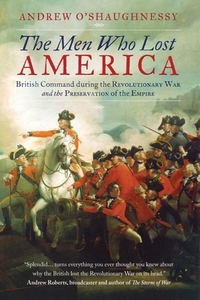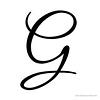Take a photo of a barcode or cover
22 reviews for:
The Men Who Lost America: British Leadership, the American Revolution, and the Fate of the Empire
Andrew O'Shaughnessy
22 reviews for:
The Men Who Lost America: British Leadership, the American Revolution, and the Fate of the Empire
Andrew O'Shaughnessy
informative
slow-paced
I picked this up because I've often wondered what the British side to the American Revolution was. The book tells the story of the British side of the Revolutionary War from the points of views of the major players, such as King George III, Lord North, and General William Howe. Each chapter is written like a wartime biography of each figure.
I enjoyed learning different things in the book, such as that King George III was actually not protective of the power of the monarchy at all (he endorsed the war because he believed Parliament should rule the American colonies and that the loss of America would be disastrous to Britain).
However, I thought the mini-biopic format slowed the pace of the book down. While the sections on some of the more major figures like George III were interesting, sections on people less known to me (such as Henry Clinton) were less so, because I wasn't able to compare the history I was taught to the history I was reading. I also felt that some of the historical facts and vignettes (e.g., Lord Cornwallis's marriage) were less useful to me than more general and theoretical discussions (e.g., the political landscape in Europe at the time of the war). I wished there was more of the latter. I skipped the last few chapters in favor of the Conclusion.
Ultimately, a more straightforward analysis of the war from the British side would have been more compelling for me. A history buff who is already familiar with all the key British players of the Revolution may feel differently.
I enjoyed learning different things in the book, such as that King George III was actually not protective of the power of the monarchy at all (he endorsed the war because he believed Parliament should rule the American colonies and that the loss of America would be disastrous to Britain).
However, I thought the mini-biopic format slowed the pace of the book down. While the sections on some of the more major figures like George III were interesting, sections on people less known to me (such as Henry Clinton) were less so, because I wasn't able to compare the history I was taught to the history I was reading. I also felt that some of the historical facts and vignettes (e.g., Lord Cornwallis's marriage) were less useful to me than more general and theoretical discussions (e.g., the political landscape in Europe at the time of the war). I wished there was more of the latter. I skipped the last few chapters in favor of the Conclusion.
Ultimately, a more straightforward analysis of the war from the British side would have been more compelling for me. A history buff who is already familiar with all the key British players of the Revolution may feel differently.
challenging
informative
slow-paced
informative
slow-paced
Good overview of the broader picture around the revolutionary war - it was of primary importance for colonials, of course, but just one part of a larger and more complicated situation for the British ruling circles.
adventurous
challenging
dark
informative
inspiring
reflective
tense
medium-paced
informative
slow-paced
informative
medium-paced
challenging
informative
reflective
medium-paced
Thoughtful account of the British leaders who lost the American Revolution. I came away convinced that they were much less incompetent than they've been made out to be and also that -- contrary to O'Shaughnessy -- this was a war that Britain was never going to win. It's hard not to sympathize with these men, who were not all that different in personality and character than the Americans on the other side.
This book approaches the American War for Independence from a several unusual angles - both looking at the war from the British perspective and delving in to several lesser known events of the war, some outside of North America. I did find this helpful and enjoyable.
However, I did not like the format of this book. It is done as a series of seperate biographies of British politicians and generals from the time. This means that the book is not in chroniological order - each biography has to cover nearly the entire war to explain what its subject did during that time. This can make it difficult, at times, to get a good sense of the sequence of events. Some sections were also rather dull, as the author seemed to prone to giving listings of character's hobbies or accomplishments. There was also at least one very crude section that was not at all necessary for the flow of the narrative.
However, I did not like the format of this book. It is done as a series of seperate biographies of British politicians and generals from the time. This means that the book is not in chroniological order - each biography has to cover nearly the entire war to explain what its subject did during that time. This can make it difficult, at times, to get a good sense of the sequence of events. Some sections were also rather dull, as the author seemed to prone to giving listings of character's hobbies or accomplishments. There was also at least one very crude section that was not at all necessary for the flow of the narrative.


